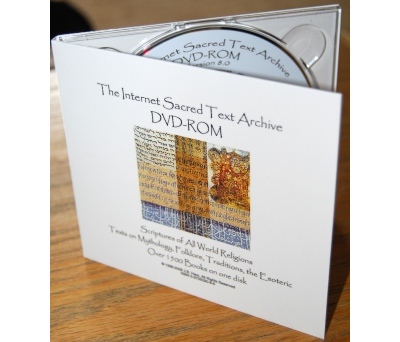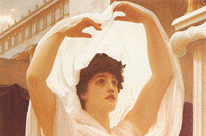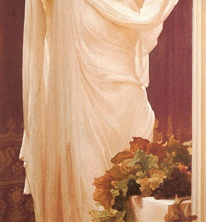Sacred-texts
Legends and Sagas
England
![Guinevere [1857] -- William Morris](guin.jpg)
|
The Works of William Morris
|
The Earthly Paradise
Translations from the Sagas
Utopian
Fantasy
This page indexes resources at this site relating to the
English artist and writer William Morris.
The Earthly Paradise
 The Earthly Paradise, (March-August)
The Earthly Paradise, (March-August)
by William Morris [1868]
William Morris' epic-length poetry cycle set in the worlds of Classical mythology and the fairytale.
 The Earthly Paradise, (September-November)
The Earthly Paradise, (September-November)
by William Morris [1870]
This part of Morris' epic includes a lengthly retelling of an incident from the Icelandic Laxdaela Saga, the Lovers of Gudrun, which some consider among Morris' best poetry.
 The Earthly Paradise, (December-February)
The Earthly Paradise, (December-February)
by William Morris [1870]
The conclusion of Morris' epic work, including the tale of Hercules and the Golden Apples; Aslaug, the daughter of Sigurd and Brynhild; Bellerophon; and two tales of the Goddess Venus.
Translations from the Sagas
 The Story of Grettir the Strong
The Story of Grettir the Strong
translated by Eirikr Magnusson and William Morris [1869].
 The Story of the Volsungs
The Story of the Volsungs
by William Morris and Eirikr Magnusson [1888]
includes extracts from the Poetic Edda.
Utopian
 News from Nowhere
News from Nowhere
by William Morris [1891]
William Morris' vision of a socialist England.
Fantasy novels
William Morris was one of the inventors of the modern fantasy novel,
quests set in self-contained worlds with Celtic, Icelandic and fairy-tale
elements.
Morris' mastery of English prose make each and every one of these books
a joy to read.
 The Hollow Land
The Hollow Land
by William Morris [1856]
One of William Morris' first fantasy tales, featuring a quest for a realm only half-glimpsed by mortals.
 The Roots of the Mountains
The Roots of the Mountains
by William Morris [1889]
A fantasy novel set in the world of the Icelandic sagas.
 The House of the Wolfings
The House of the Wolfings
by William Morris [1889]
Morris' fantasy novel set among the ancient Germanic tribes was cited as in influence Tolkien.
 The Story of the Glittering Plain
The Story of the Glittering Plain
by William Morris [1891]
A quest for a stolen fiance leads us into the utopian Land of the Glittering Plain.
 The Wood Beyond the World
The Wood Beyond the World
by William Morris [1894]
The Wood Beyond the World is one of Morris' masterpieces which he originally published using hand-set type.
 Child Christopher and Goldilind the Fair
Child Christopher and Goldilind the Fair
by William Morris [1895]
Morris' retelling of the medieval Lay of Havelock the Dane, cited as an influence on C.S. Lewis' Prince Caspian.
 The Well at the World's End
The Well at the World's End
by William Morris [1896]
A classic journey 'there and back again' to find a well which confers near-imortality.
 The Water of the Wondrous Isles
The Water of the Wondrous Isles
by William Morris [1897]
One of the first fantasy novels with a well-developed female heroine.
 The Sundering Flood
The Sundering Flood
by William Morris [1897]
Morris' last fantasy novel, finished on his death-bed.




![Guinevere [1857] -- William Morris](guin.jpg)



